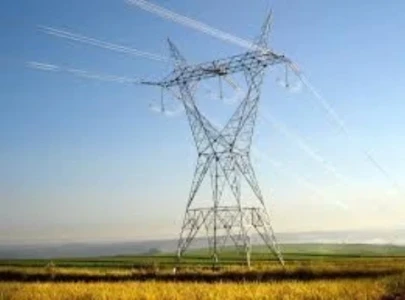Massachusetts Legislation Aims to Accelerate Shift from Natural Gas

Massachusetts is taking bold steps to address its energy future with new legislation aimed at accelerating the state's transition away from natural gas. The proposed bill, introduced by state lawmakers, focuses on reducing reliance on fossil fuels and enhancing the state's renewable energy goals. It seeks to address key challenges, including the high costs associated with shifting away from natural gas infrastructure and the state’s ability to meet its ambitious climate targets.
Massachusetts has long been a leader in adopting renewable energy policies, but one of the key obstacles has been the continued dependence on natural gas, which is the primary source of electricity generation in the state. This new piece of legislation, however, is designed to remove barriers that could hinder progress toward the state’s renewable energy goals, making it easier for Massachusetts to cut its carbon emissions and pave the way for a cleaner, more sustainable energy system.
A Push for Clean Energy Transition
The legislation, dubbed the "Clean Energy Future Act," is part of a larger effort by Massachusetts to achieve net-zero carbon emissions by 2050. The state has already set an ambitious target to reduce emissions by 80% by 2050, but critics have argued that Massachusetts' heavy reliance on natural gas could make it difficult to meet these targets.
Natural gas, while cleaner than coal, still emits significant amounts of carbon dioxide and methane—greenhouse gases that contribute to global warming. Moreover, the infrastructure built around natural gas, such as pipelines and power plants, represents a significant investment that state regulators and lawmakers are keen to address. Under the proposed bill, Massachusetts would work to eliminate roadblocks that hinder the development of renewable energy projects, including solar, wind, and storage technologies, while reducing the dependency on fossil fuels.
Key Components of the Legislation
The new legislation addresses several important aspects of the state’s energy transition:
-
Incentives for Renewable Energy: The bill provides financial incentives for new renewable energy projects, including both large-scale wind and solar farms as well as smaller, community-based initiatives. These incentives would help make renewable energy more affordable and attractive for both developers and consumers.
-
Phasing Out Natural Gas: One of the more ambitious aspects of the legislation is its goal to reduce natural gas consumption over time. This includes measures to encourage utilities to move away from natural gas and invest in cleaner technologies such as green hydrogen, geothermal energy, and advanced battery storage solutions.
-
Transitioning Energy Infrastructure: A critical element of the bill is its focus on upgrading and repurposing existing energy infrastructure. Many of the pipelines and power plants that currently rely on natural gas could be repurposed to accommodate renewable energy sources. This would help minimize the costs of building new infrastructure and allow Massachusetts to transition more smoothly to cleaner energy systems.
-
Support for Low-Income Communities: Another key feature of the proposed legislation is its focus on equity. The bill includes provisions to ensure that low-income communities, who often bear the brunt of the negative impacts of fossil fuel pollution, benefit from the clean energy transition. This includes funding for energy efficiency programs, renewable energy installations, and job training programs.
-
Carbon Pricing and Emission Reductions: In addition to incentives, the bill also proposes new carbon pricing mechanisms to encourage businesses and utilities to reduce their emissions. By setting a price on carbon, Massachusetts hopes to drive investment in cleaner technologies and energy solutions.
Economic and Environmental Impact
The economic implications of this legislation are far-reaching. Massachusetts has become a hub for clean energy jobs in recent years, and by investing in the clean energy sector, the state could further bolster its economy while simultaneously addressing the threat of climate change. The transition from natural gas to renewable energy could lead to the creation of thousands of new jobs in renewable energy sectors such as solar, wind, energy storage, and green manufacturing.
From an environmental standpoint, the bill has the potential to significantly reduce Massachusetts' carbon footprint. By accelerating the shift from natural gas to renewable energy, the state could meet its climate goals more effectively, contributing to the global fight against climate change.
Challenges and Future Outlook
While the Clean Energy Future Act represents a promising step forward, there are still hurdles to overcome. Implementing such a sweeping transition from natural gas will require significant investment, political will, and regulatory coordination. Moreover, energy markets, labor forces, and infrastructure will need to be adjusted to accommodate a new energy paradigm.
Nevertheless, Massachusetts' commitment to reducing its carbon emissions is clear. With this legislation, the state aims to not only phase out fossil fuels but also lead by example, demonstrating that a clean energy future is not only necessary but also economically viable. As other states and regions look for pathways to decarbonize, Massachusetts could provide a valuable model for successful energy transition strategies.
As the bill moves through the legislative process, the coming months will be critical for shaping the future of Massachusetts’ energy landscape. If passed, it could be a pivotal moment in the state's clean energy journey.








